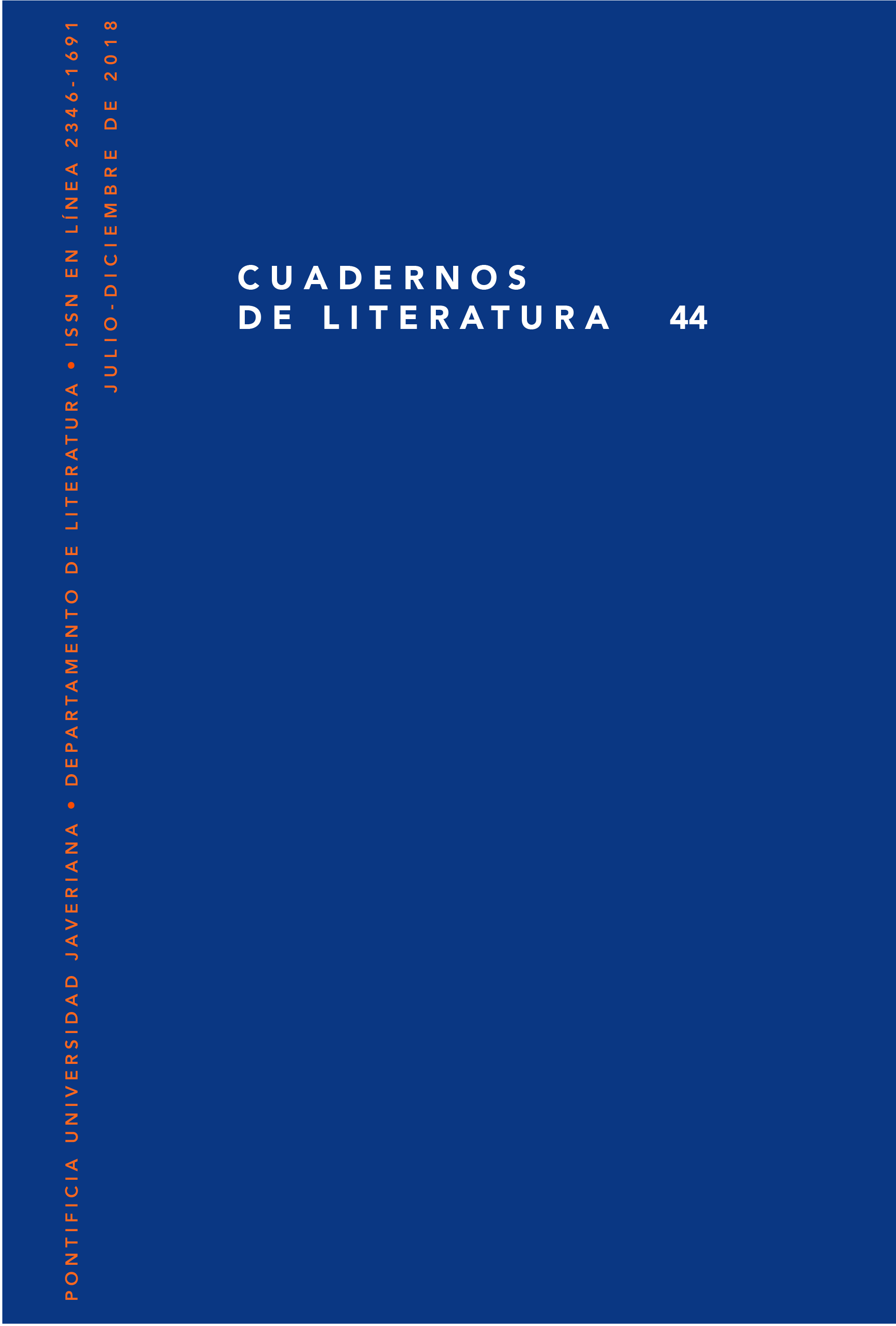Abstract
This paper reviews Forrahue. Matanza de 1912, written by the Mapuche writer Bernardo Colipán and co-authored with the Forrahue indigenous community located in Southern Chile. The book is a testimonial text that acts as a legal document and seeks to restore the truth in the context of Chile’s historical account and collective memory. This text includes diagrams, photos and fragments in various types of handwriting, which we consider relevant in the reading and interpretation of this cultural artifact. From a symbolic perspective, the book is the place where the unburied bodies rest, allowing both the Chilean and Mapuche communities to mourn.
Cuadernos de Literatura is registered under a Creative Commons Attribution 4.0 International Public License. Thus, this work may be reproduced, distributed, and publicly shared in digital format, as long as the names of the authors and Pontificia Universidad Javeriana are acknowledged. Others are allowed to quote, adapt, transform, auto-archive, republish, and create based on this material, for any purpose (even commercial ones), provided the authorship is duly acknowledged, a link to the original work is provided, and it is specified if changes have been made. Pontificia Universidad Javeriana does not hold the rights of published works and the authors are solely responsible for the contents of their works; they keep the moral, intellectual, privacy, and publicity rights.
Approving the intervention of the work (review, copy-editing, translation, layout) and the following outreach, are granted through an use license and not through an assignment of rights. This means the journal and Pontificia Universidad Javeriana cannot be held responsible for any ethical malpractice by the authors. As a consequence of the protection granted by the use license, the journal is not required to publish recantations or modify information already published, unless the errata stems from the editorial management process. Publishing contents in this journal does not generate royalties for contributors.


